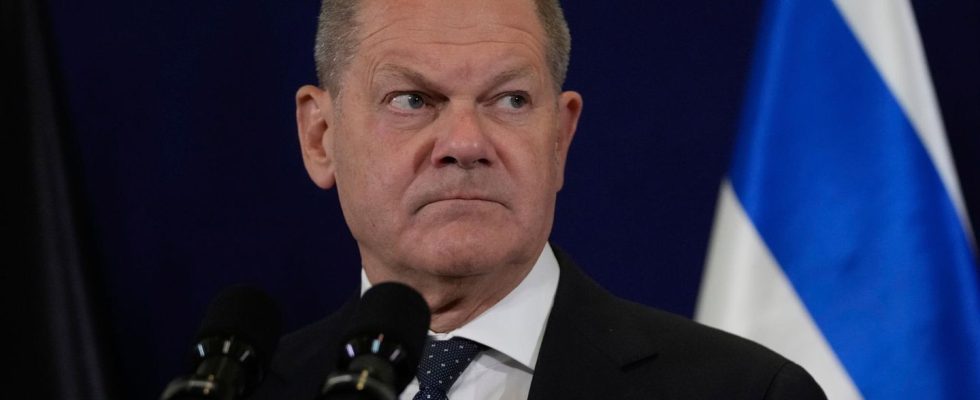column
Fried – view from Berlin
What Olaf Scholz’s mysterious words really mean
Olaf Scholz not only took up the concept of reason of state again, but also made its definition more concrete, writes star-Columnist Nico Fried
© Maya Alleruzzo / Picture Alliance / AP
Israel’s security is German reasons of state – what does that actually mean? In any case, Olaf Scholz seems prepared to go very far.
One word has been going around in Germany since Hamas brutally attacked Israel: raison d’état. Angela Merkel introduced the term in a speech to the United Nations in 2007, and she emphasized it again when she spoke to the Israeli parliament in 2008. Germany has a special responsibility for Israel’s existence; its security is not negotiable. That was Merkel’s confession, but she never spelled out the essence of it. Only now, after the Hamas attack, has Merkel’s successor Olaf Scholz concretized the reasons of state almost unnoticed. By what he said about it – and what he didn’t say.
The term “reason of state” is actually misleading. In terms of the history of ideas, it is about “absolutizing the power interests of one’s own state and degrading everything else into a means to this end,” as the historian and journalist Ulrich Speck once put it. If you take Merkel at her word, she has – just the opposite – made the well-being of another state a prerequisite for the legitimacy of her own, using Israel’s security as a reason of state.
For a long time, the reason of state provided a comfortable cushion for German Middle East policy. It was the key word for Germany taking seriously the obligation derived from its own historical guilt. On the other hand, there seemed to be no danger that its importance would ever be tested so seriously, as the then Federal President Joachim Gauck described it during his inaugural visit to Israel in 2012: He did not want to “imagine every scenario that would get the Chancellor into enormous difficulties, hers “The sentence that Israel’s security is German raison d’être must be implemented politically.”
Reason of state is a balancing process
Gauck may have had a war with Iran in mind – and the domestic political upheavals, for example in the event of an Israeli request for military support. In 2006, the debate about sending the German navy to the Lebanese coast, where the Bundeswehr was supposed to stop Hezbollah’s arms smuggling at Israel’s request, showed that history can be used as a respectable argument by both supporters and opponents. While Merkel promoted the operation based on the historical dimension, the majority of the FDP and Merkel’s later Foreign Minister Guido Westerwelle rejected it precisely because of Germany’s past. Even the reason of state is always a weighing process – and in the most extreme case is subject to parliamentary approval.
It is all the more remarkable that Olaf Scholz has not only taken up the concept of raison d’état again, but has also made its definition more concrete: According to the Chancellor in his government statement on the Hamas attack, he asked Prime Minister Benjamin Netanyahu to immediately inform him of any need for support. This will then be checked immediately “and granted”. For Scholz, reason of state is just another word for another old familiar foreign policy term: unrestricted solidarity.
Scholz’s idea of raison d’état becomes even clearer through the parallels with the war in Ukraine – and its borders. In the case of Ukraine, the Chancellor is determined not to let Germany become a party to the war. Weapons assistance is also aimed at this. Scholz has not yet drawn such a limit for Israel.




